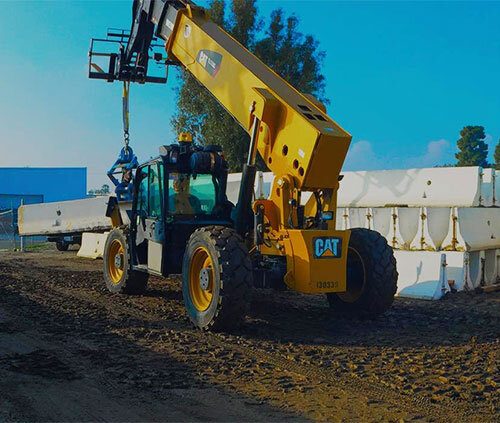Maximize Your Budget by Recognizing the Prices Connected With Building Equipment Services
Comprehending the complete scope of expenses connected with building and construction devices services is critical for maximizing your spending plan. What approaches can be used to efficiently manage these costs and guarantee a more effective rental experience?
Introduction of Rental Prices
When considering building and construction devices services, recognizing the linked prices is extremely important for effective budgeting and project planning. Rental prices can vary considerably based on numerous factors, consisting of devices type, duration of service, and area. The first rental fee frequently reflects the tools's market need and its linked functional abilities, affecting the overall expenditure.
In enhancement to the base rental price, supplementary costs may emerge, such as transport charges, gas surcharges, and upkeep fees. It is vital to represent these added costs to precisely evaluate the total cost of renting out tools. Additionally, the rental period can impact rates; longer rentals might get approved for reduced prices, while temporary leasings may incur higher day-to-day fees.

Breakdown of Rental Prices
An extensive understanding of rental prices is vital for service providers and task managers aiming to optimize their spending plans. Rental prices for building tools generally include numerous elements, including base rates, time-based charges, and usage fees.
Base rates are the core costs connected with the service of the equipment, typically figured out by the kind and dimension of the equipment. These rates can vary significantly, affected by variables such as devices demand, schedule, and regional market trends. Time-based charges, which may be daily, weekly, or monthly, offer to suit different job timelines and rental periods.
In addition, rental prices may consist of usage fees, which apply when tools is used beyond a defined limit, making sure that the rental firm can account for damage. Seasonal need variations can likewise influence rental prices, with peak building seasons usually regulating greater prices.
Additionally, understanding the rental business's policies concerning upkeep and insurance can supply further understanding right into the general expense structure. By examining these components, professionals can make educated decisions, ensuring the selection of rental equipment lines up with both job needs and spending plan constraints.
Additional Costs to Think About
Recognizing the details of added charges is crucial for contractors to handle their total rental costs successfully. Past the common rental prices, numerous auxiliary costs can substantially influence the complete cost of tools rental. These fees commonly include distribution and pickup fees, which can vary based upon range and logistics associated with transporting the equipment to and from the job site.
In addition, some rental firms might enforce gas surcharges if the tools is returned with less fuel than when rented. It is additionally necessary to be aware of prospective cleaning charges, especially for specific equipment that requires extensive upkeep after use.

Thoroughly assessing the rental arrangement and clarifying these additional charges upfront can assist contractors prevent unexpected expenses and ensure that budget plans stay intact throughout the job lifecycle.
Repair And Maintenance Expenses
Regular maintenance and repair work expenses are commonly forgotten elements that can considerably influence the total price of construction equipment rentals. When renting out equipment, it is crucial to think about not only the rental costs yet likewise the prospective expenses related to keeping the machinery in ideal operating condition.
Several rental business include fundamental maintenance as part of the rental contract; however, a lot more unforeseen failures or extensive repair work can bring about extra costs. It's vital to evaluate the rental agreement carefully to comprehend what upkeep services are covered and what responsibilities drop on the tenant.
In addition, tools that is news not well-maintained can result in ineffectiveness at work website, possibly triggering delays and enhancing task costs. To minimize these risks, it is advisable to conduct regular inspections and keep open interaction with the rental provider relating to any type of problems that occur throughout usage.
Insurance Policy and Obligation Costs
Insurance coverage and responsibility expenses are vital elements that can significantly affect the overall expenditure of building and construction tools services (dozer rental). These expenses make certain that both the rental firm and try this website the customer are shielded from prospective financial losses occurring from accidents, damage, or theft throughout the rental duration

In addition, clients must be aware of any type of deductibles or exemptions in the insurance plan, as these can influence possible out-of-pocket costs. Comprehending the conditions of any kind of insurance coverage is important to prevent unexpected costs. Ultimately, budgeting for insurance coverage and liability costs can assist guarantee a smoother rental experience and shield versus financial risks related to construction jobs.
Conclusion
In final thought, a see post thorough understanding of the prices linked with building equipment rentals is important for effective budget plan monitoring. Inevitably, educated decision-making concerning devices rentals adds to the total success of building ventures.
Rental prices can differ dramatically based on several variables, including tools type, duration of leasing, and place (construction equipment rentals). The rental period can impact prices; longer rentals might qualify for affordable rates, while temporary services could incur greater day-to-day charges
By performing detailed study and engaging with credible rental business, professionals can effectively navigate the complexities of rental rates, eventually optimizing their economic resources.
Past the conventional rental prices, numerous supplemental charges can significantly impact the overall cost of equipment service. Rental business commonly offer obligation insurance coverage that covers injuries to third celebrations or damage to residential property, while tools damages insurance can cover the expense of repair work or substitute if the rented out tools is harmed.